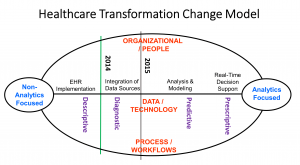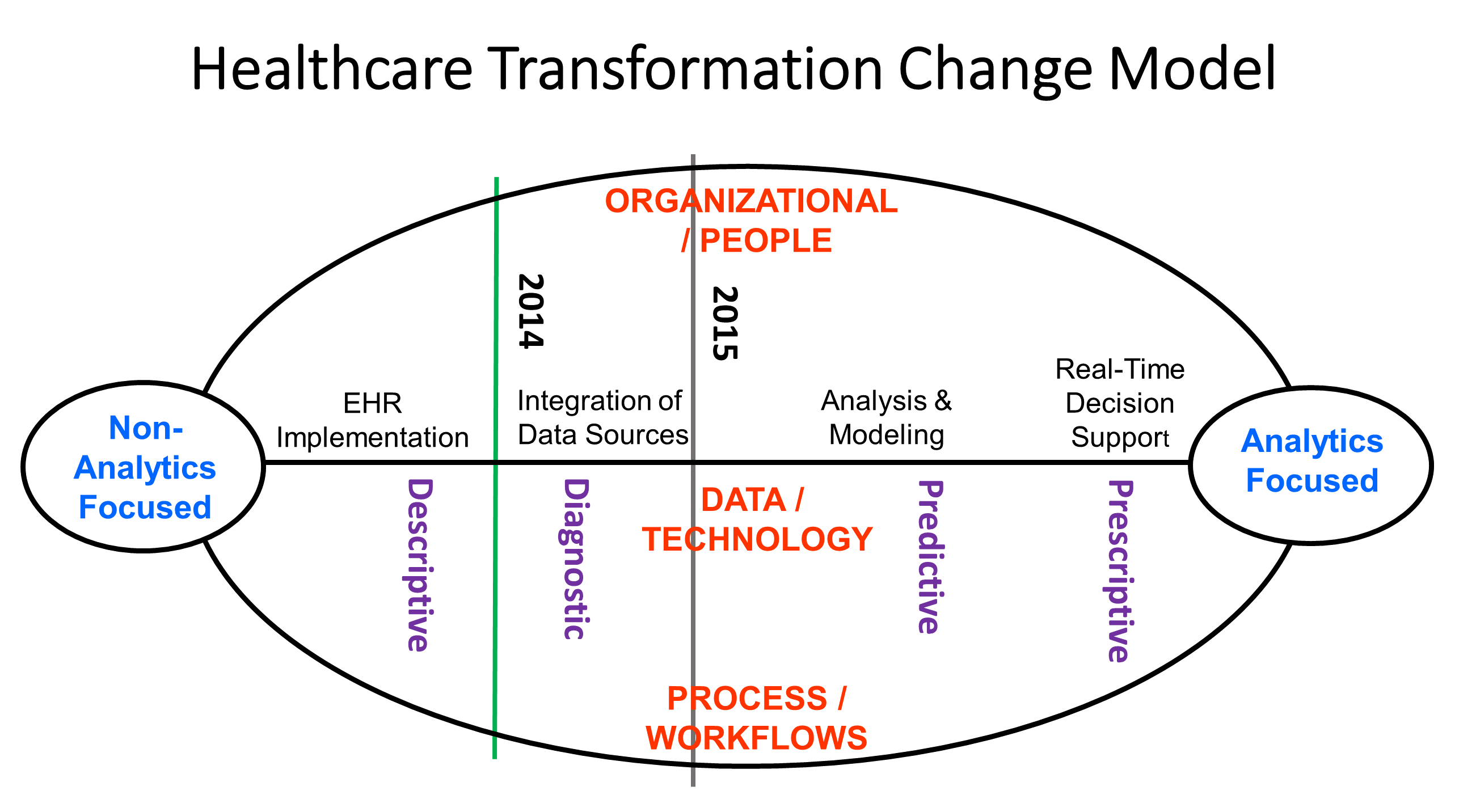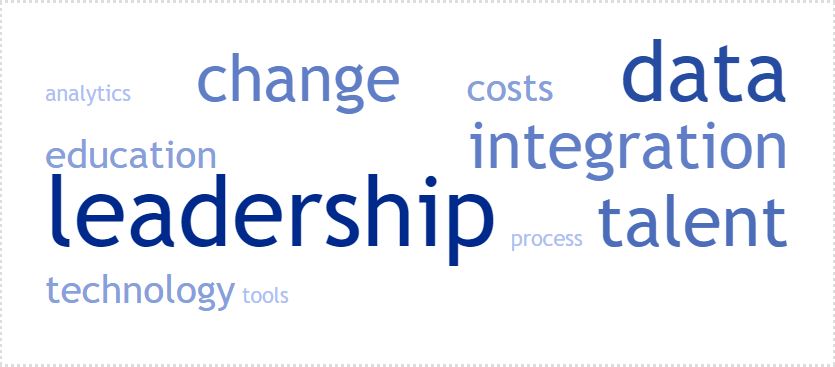5 thoughts on the future of healthcare from Cleveland Clinic CEO Dr. Toby Cosgrove
When Delos “Toby” Cosgrove, MD, president and CEO of Cleveland Clinic, was a high school junior, his father took him to visit a family friend who was a college professor.
“Naturally, the conversation turned into, ‘What do we need to do to get Toby into college,'” Dr. Cosgrove told the audience during a keynote at Becker’s Hospital Review’s 8th Annual Meeting in Chicago. Rhoda Weiss, PhD, speaker, author, consultant and co-chair of the meeting, moderated the conversation. The professor said he was not interested in Dr. Cosgrove’s IQ, but rather his GQ — a term that neither Dr. Cosgrove nor his father had heard before.





 Since 2014, the Healthcare Center of Excellence (HCOE) has been tracking the healthcare industry’s progress towards population health analytics using their proprietary Healthcare Transformation Change Model. This model was developed in 2013 to help healthcare organizations understand the requirements to become an analytics focused healthcare organization. The concepts were based on a customer relationship marketing (CRM) implementation model, previously co-developed by Professor Bennett. The CRM model was considered by Gartner to be one of the top three CRM implementation visions at the time and has become the basis for most successful CRM implementations today.
Since 2014, the Healthcare Center of Excellence (HCOE) has been tracking the healthcare industry’s progress towards population health analytics using their proprietary Healthcare Transformation Change Model. This model was developed in 2013 to help healthcare organizations understand the requirements to become an analytics focused healthcare organization. The concepts were based on a customer relationship marketing (CRM) implementation model, previously co-developed by Professor Bennett. The CRM model was considered by Gartner to be one of the top three CRM implementation visions at the time and has become the basis for most successful CRM implementations today.

